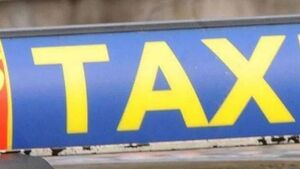Sharp fall in Laois taxi numbers

File image
THE number of taxis in Laois has plunged by 12 per cent in the past six years, new figures from the National Transport Authority (NTA) reveal.
There were 210 taxis in the county last year, down from 239 in pre-covid 2019.
While numbers have increased slightly, up from 206 in 2022 and 207 in 2023, they are still far below pre-pandemic levels.
Describing the local and national situation as ‘a taxi shortage crisis’, the Taxis for Ireland Coalition (TIC) claims that the requirement for new taxis to be wheelchair accessible is the main barrier to drivers entering the market.
The representative group says that wheelchair accessible vehicles (WAVs) typically cost over €60,000 and grant assistance from the NTA is ‘highly oversubscribed’. According to the group, the WAV grant closed within 15 minutes of opening in 2025, similar to the previous two years.
Restaurants Association of Ireland chief executive and TIC founding member Adrian Cummins said: “We are still facing a taxi shortage crisis. It’s being hidden behind a modest urban recovery, but the reality in regional areas and at urban peak times is that people are stranded.”
The NTA data shows that taxi numbers nationally have remained stagnant or in sharp decline in many areas, despite a population rise of 8.5 per cent from 2019 to 2024 and tourism growth of five per cent from 2023 to 2024.
In a statement, TIC said: ‘The figures show that taxi driver growth is overwhelmingly concentrated in Dublin, exacerbating existing inequalities and leaving both urban and rural communities, which have limited public transport alternatives, disproportionately disadvantaged.’
Regional analysis shows that Leinster saw a three per cent rise in taxi numbers from 2019 – 2024. However, when Dublin is excluded, the province had a 14.9 per cent decline.
The TIC is calling for reform of the WAV requirement, describing NTA targets as ‘unrealistic’.
Mr Cummins said: “In rural Ireland, hospitality businesses are being devastated. Without taxis, people stay home. The WAV rule is locking out the very drivers we need. We need a modern, flexible, and inclusive taxi system. Right now, the system works for no one - not the drivers, not the passengers and not our economy.”




